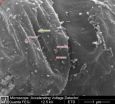(Press-News.org) MANHATTAN -- A critical job performance evaluation can have a negative effect on any employee, a Kansas State University researcher has found.
By studying how people view positive or negative feedback, Satoris Culbertson, assistant professor of management, has determined that nobody -- even people who are motivated to learn -- likes negative performance reviews. Culbertson is developing ways to help managers improve the process for reviewing employees.
Culbertson and collaborators at Eastern Kentucky University and Texas A&M University surveyed more than 200 staffers who had just completed performance reviews at a large southern university. The research appears in the Journal of Personnel Psychology.
The researchers first assessed employees' goal orientations:
Learning goal-oriented people like to learn for the sake of learning. They often pursue challenges despite setbacks.
Performance-prove goal-oriented people want to prove that they have competence to perform a job.
Performance-avoid goal-oriented people want to avoid looking foolish.
The researchers hypothesized that that the two types of performance-oriented people only would be satisfied with performance appraisals in which they received positive feedback because negative feedback would make them look bad. But the researchers thought that learning goal-oriented employees would be satisfied with an appraisal in which they received negative feedback because these individuals would see it as a learning opportunity.
"Surprisingly, we found that learning-oriented people were just as dissatisfied with an appraisal that had negative feedback as the performance-oriented people were," Culbertson said. "Nobody likes to get negative feedback -- even those individuals who aren't trying to prove anything to others, but instead are just trying to learn as much as possible."
The research shows that managers need to be careful when giving feedback to employees, Culbertson said. Performance appraisals can affect motivation, commitment and performance, which managers should keep in mind when evaluating employees.
"It is not so much that the performance review needs to be abolished, but we need to fix what is broken," Culbertson said. "Instead of limiting ourselves to formal performance appraisals conducted once or twice a year, we need to think about performance management as a system that is linked with the strategy of the entire organization."
Rather than making a performance review an annual event between a supervisor and employee, employers should consider making it an ongoing process.
"We can actually make the most out of the system," Culbertson said. "But if we are only going to have once-a-year evaluations, we shouldn't expect it to work."
Based on the research, Culbertson has several suggestions to help managers construct performance evaluations:
Focus on constructive feedback instead of negative feedback. While negative feedback focuses on what an employee is doing wrong, constructive feedback brings in elements for improvement.
"Negative feedback is not the same as constructive feedback," Culbertson said. "We should be careful that negative feedback is provided in a way that is more constructive because it can help people try to improve."
Be careful with number-based performance reviews. People view numbers differently, Culbertson said. For example, on an evaluation with a 1-to-5 scale, a manager might give an employee a 4 out of 5. The manager might see this as positive feedback, but an employee might see this as negative if he or she is striving for a 5 out of 5.
"This is where our words are really powerful," Culbertson said. "We want to make sure we are conveying to employees whether we are giving a good evaluation or describing something that needs to improve."
Avoid the "sandwich" approach.This approach occurs when managers provide positive feedback, then give negative feedback and finish with positive feedback.
"Sometimes the sandwich approach comes across as dishonest or not something that people will buy," Culbertson said.
INFORMATION: END
Researcher builds a better job performance review
2014-02-24
ELSE PRESS RELEASES FROM THIS DATE:
Now it will become cheaper to make second-generation biofuel for our cars
2014-02-24
Producing second-generation biofuel from dead plant tissue is environmetally friendly - but it is also expensive because the process as used today needs expensive enzymes, and large companies dominate this market. Now a Danish/Iraqi collaboration presents a new technique that avoids the expensive enzymes. The production of second generation biofuels thus becomes cheaper, probably attracting many more producers and competition, and this may finally bring the price down.
The world's need for fuel will persist, also when the Earth's deposits of fossil fuels run out. Bioethanol, ...
Biomedical bleeding affects horseshoe crab behavior
2014-02-24
DURHAM, N.H. – New research from Plymouth State University and the University of New Hampshire indicates that collecting and bleeding horseshoe crabs for biomedical purposes causes short-term changes in their behavior and physiology that could exacerbate the crabs' population decline in parts of the east coast.
Each year, the U.S. biomedical industry harvests the blue blood from almost half a million living horseshoe crabs for use in pharmaceuticals — most notably, a product called Limulus amebocyte lysate (LAL), used to ensure vaccines and medical equipment are free ...
Significant discrepancies between FISH and IHC results for ALK testing
2014-02-24
DENVER –The findings of a recent study indicate that routine testing with both fluorescent in situ hybridization (FISH) and immunohistochemistry (IHC) may enhance the detection of ALK-positive non-small cell lung cancer (NSCLC). Accurate determination of ALK-positive tumors is necessary to identify patients with advanced NSCLC who are most likely to benefit from targeted therapy with an ALK inhibitor.
The discovery of ALK rearrangement in about 1% to 7% of NSCLCs led to the development of ALK inhibitors, such as crizotinib, which have significantly improved treatment ...
Researchers find flowing water can slow down bacteria
2014-02-24
In a surprising new finding, researchers have discovered that bacterial movement is impeded in flowing water, enhancing the likelihood that the microbes will attach to surfaces. The new work could have implications for the study of marine ecosystems, and for our understanding of how infections take hold in medical devices.
The findings, the result of microscopic analysis of bacteria inside microfluidic devices, were made by MIT postdoc Roberto Rusconi, former MIT postdoc Jeffrey Guasto (now an assistant professor of mechanical engineering at Tufts University), and Roman ...
Tip to dieters: Beware of friends and late night cravings
2014-02-24
There's more to dieting than just sheer willpower and self-control. The presence of friends, late night cravings or the temptation of alcohol can often simply be too strong to resist. Research led by Heather McKee of the University of Birmingham in the UK monitored the social and environmental factors that make people, who are following weight management programs, cheat. The study¹ is published in the Springer journal Annals of Behavioral Medicine.²
Eighty people who were either part of a weight-loss group or were dieting on their own participated in the one-week study. ...
Novel assay developed for detecting ALK rearrangement in NSCLC
2014-02-24
DENVER – Researchers have developed a novel technique for detecting ALK rearrangements in non-small cell lung cancers (NSCLCs) that is more sensitive and easier to perform than currently available techniques. The technique can help enhance the routine practice of diagnostic ALK testing on NSCLCs, which is crucial for identifying patients with advanced NSCLC who are most likely to benefit from targeted therapy with an ALK inhibitor.
None of the current three routine methods used to detect ALK rearrangements in NSCLC is without drawbacks, especially for tissue specimens ...
A fast and effective mechanism to combat an aggressive cancer
2014-02-24
Ovarian cancer accounts for more deaths of American women than any other cancer of the female reproductive system. According to the American Cancer Society, one in 72 American women will be diagnosed with ovarian cancer, and one in 100 will ultimately die of the condition.
Now Prof. Dan Peer of Tel Aviv University's Department of Cell Research and Immunology has proposed a new strategy to tackle an aggressive subtype of ovarian cancer using a new nanoscale drug-delivery system designed to target specific cancer cells. He and his team – Keren Cohen and Rafi Emmanuel from ...
EARTH Magazine: Tsunamis from the sky
2014-02-24
Alexandria, VA – On a beautiful, clear June morning in 1954, a massive wave suddenly swept out of Lake Michigan killing at least seven people along the Chicago waterfront. At the time, the wave was attributed to a storm that had earlier passed over northern Lake Michigan, but how it came to swamp faraway Chicago, with no warning, was not understood.
The Great Lakes, along with the Mediterranean, Japan and many other parts of the world, have a long history of such waves, which have characteristics similar to tsunamis triggered by earthquakes or landslides.
Only recently, ...
Cardiovascular Institute researcher: Cancer drug may lower sudden cardiac death risk
2014-02-24
PROVIDENCE, R.I. – A researcher at the Cardiovascular Institute (CVI) at Rhode Island, The Miriam and Newport hospitals has found that a new class of drugs, originally developed to treat cancer, reduces sudden cardiac death risk after a heart attack. The findings were published online in advance of print in the Journal of the American College of Cardiology.
"Currently, there are limited options to reduce sudden cardiac death following a heart attack," said principal investigator Samuel C. Dudley, M.D., Ph.D., chief of cardiology at the CVI. "The benefit of most drugs ...
Toxic injection with elastic band
2014-02-24
This news release is available in German.
Bacteria have developed many different ways of smuggling their toxic cargo into cells. Tripartite Tc toxin complexes, which are used by bacteria like the plague pathogen Yersinia pestis and the insect pathogen Photorhabdus luminescens, are particularly unusual. Stefan Raunser from the Max Planck Institute of Molecular Physiology in Dortmund and his colleagues from the University of Freiburg have produced extremely accurate and detailed images of these "toxic injections"; they reveal from where the molecule complexes take ...




